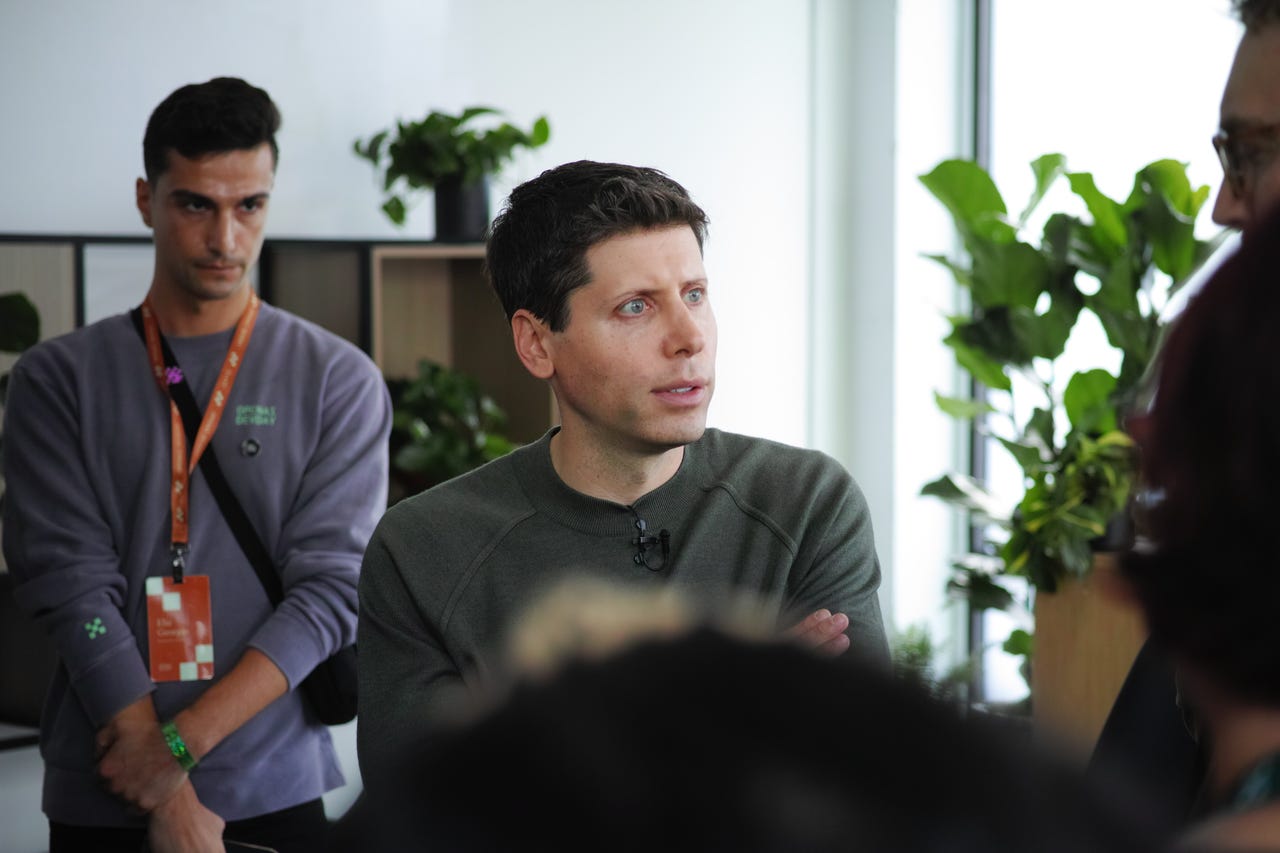OpenAI CEO: We're happy if Microsoft makes a sale, and they're happy if we make a sale

"We are all happy either way" no matter who closes a sale, says OpenAI CEO Sam Altman of the company's partnership with Microsoft.
OpenAI's partnership with Microsoft has no fixed definition of who is leading or handling enterprise AI sales, said Sam Altman, CEO of the artificial intelligence startup. Instead, each company tries its best for "the most shared success possible."
Altman, speaking to a small group of press at the company's first-ever developer conference, in San Francisco, on Monday, indicated there was no set structure to the relationship, which has involved Microsoft putting over ten billion dollars worth of investment into OpenAI.
Also: OpenAI unveils custom GPTs, Store, and Assistant API, at Dev Day
As ZDNET put the question, "A lot of people still wonder where is the division, in going to enterprises, between what OpenAI does and what Microsoft does? Who's responsible for leading, and how does it shake out in terms of who's going to make that happen?"
"The answer is we're both gonna do it, and we set up the relationship between the two of us so that we're very happy when they succeed with a sale, and they're very happy when we succeed with a sale," said Altman, referring to OpenAI and Microsoft. "I'm a huge believer in incentives and superpowers, and if you get everybody's incentives right, everybody just wants the most shared success possible, and I think we've designed that very well," he said.
"They [Microsoft] can sell to a customer," noted Altman. "There's people who, you know, are on Azure who want something that's inside the Azure portal. There's people who like to work directly with us for various reasons, and we are all happy either way."
Also: MacBook Pro (M3 Max) review: A desktop-class laptop for an AI-powered age
Earlier, during his keynote address, Altman was joined onstage by Microsoft CEO Satya Nadella. Altman jokingly asked Nadella, "How is Microsoft thinking about the partnership?" That drew laughter from both Nadella and the audience.
"You guys have built something magical," said Nadella. The partnership has "dramatically changed" the "shape" of Microsoft's Azure cloud computing service, said Nadella. "Our job is to make the best system so you can build the best models," added Nadella.
"I always think of Microsoft as a platform company, a developer company, and a partner company," said Nadella. "The systems that are needed as you aggressively push forward on your roadmap require us to be on the top of our game," said Nadella. He added that the shared mission of the two companies is "to empower every person in every organization on the planet to achieve more".
"The way I summarize it, it's kind of like that, you know, first step of work for anyone, really," says OpenAI CTO Mira Murati, left, of the company's use cases in enterprise. "It just does that first step of work for you, and it's really like a great collaborator."
In response to Nadella, Altman remarked, "I'm excited for us to build AGI together," meaning, artificial general intelligence, the notion of computers that can match human thought capabilities.
In addition to over 2 million developers working with its code, Altman said that 92% of Fortune 500 companies are using its technology.
Also: Every AI project begins as a data project, but it's a long, winding road
Asked during the press conference for business examples, OpenAI's CTO, Mira Murati, taking part in the same press conference with Altman, said, "We have customers in almost every industry, in financial services, in a lot of legal applications, in education apps.
"The way I summarize it, it's kind of like that, you know, first step of work for anyone, really," said Murati. "It just does that first step of work for you, and it's really like a great collaborator."
